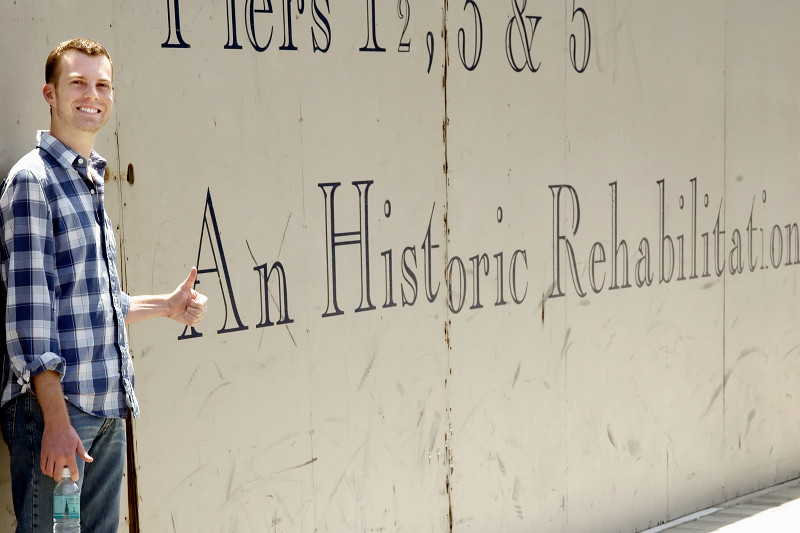Des haricots verts
During our visit with Stephanie’s cousins, we got into a discussion about how to pronounce des haricots verts (some green beans).

There’s this thing in French called a liason where the eerily silent letters at the ends of words are resuscitated if the following word begins with a vowel. So for instance les (the, plural) is usually pronounced [lay] but when it’s followed by enfants (children), the “s” reappears and it sounds like [layz] as in [layz-on-fon].
In the case of des haricots verts, or more specifically des haricots, according to the older generation (which includes Stephanie) it is pronounced [day air-e-koh] with a perceptible hiatus after [day], because, well, haricots doesn’t begin with a vowel dammit!—even though the “h” isn’t pronounced. However, the younger generation, innovative whippersnappers that they are, have apparently begun to pronounce it [dayz-air-e-koh], creating a liason between des and haricots, promoting the otherwise silent “s” at the end of des to a loud and proud “z”—and I’m sure causing French parents everywhere no end of angst.
Perhaps this is an example of language change in process, but for all I know, the “des-haricots-liason fight” has been going on forever, and is simply a linguistic marker that defines one generationally.
However, that didn’t stop me from at least attempting to draw a parallel in English between the use of the indefinite articles “a” and “an” and whether words do or do not begin with a vowel. For example “h” is a consonant, but we say “an hour” because the h is silent, and thus “hour” begins with a vowel sound. But no one argues that point, so it didn’t quite parallel the des haricots situation. I remember there being a better example out there, one that set my teeth on edge, but for the life of me, I couldn’t recall it. Until today: “an historic ___”.
Ugh. Nothing screams affectation like someone writing, or god forbid saying, “an historic event”. Unlike “hour” above, the “h” in historic is pronounced, so unless you pronounce the word [iss-tor-ik] in your particular dialect (which I’m told may be the case with British English—Katie M, care to comment?), as an American English speaker, using “an” here strikes me as wrong.

So if Americans pronounce the “h” in historic, why do I occasionally stumble upon modern instances of “an historic” (such as in the photo above)? I found the following to be a compelling explanation:
There is an old practice, which has not yet completely died out, in which an is used in place of a if certain conditions are fulfilled. These are complex, involving the stress pattern of the h-word, the vowel which follows the h, and the part of speech. And not all accounts of these rules agree with one another. In general, only adjectives which begin with hi or hy in an unstressed syllable take an (not including cases where i or y is pronounced as a ‘long i’ as in five).
I believe that reduces the possibilities to only four. Rather than memorizing a great many rules, simply recognize that you will see the following four adjectives preceded by an on occasion—when the writer is following older, more conservative practices.
historic(al), hysteric(al), Hispanic, and hypnotic
Who knew? And ironically, CalifJim, who wrote the explanation above, still types two spaces after a period. Jim, think of Derek!
Update: Just randomly stumbled upon this video while looking up a word: Merriam-Webster Ask the Editor – A vs. An (their recommedation: “a historical…”)